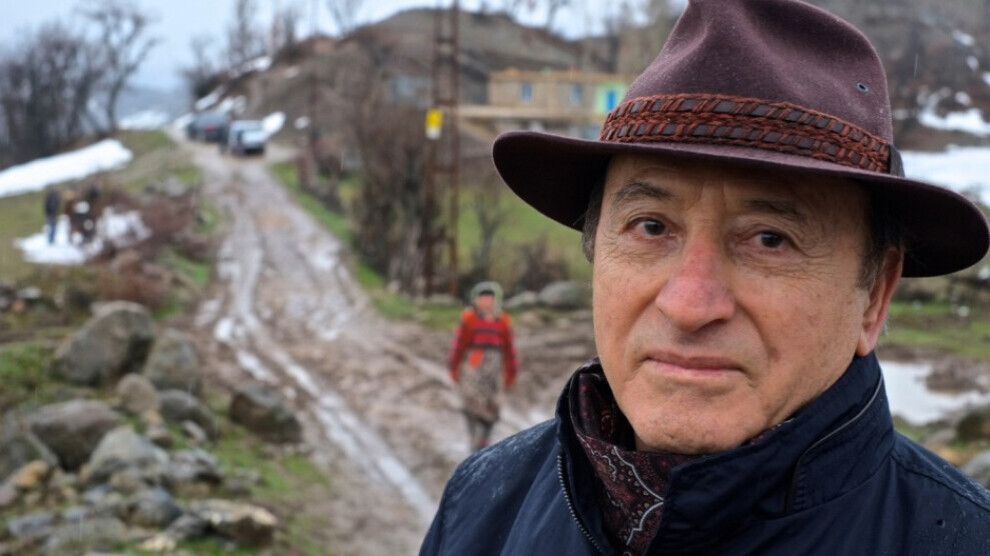Kurdish writer Haydar Işık passes away
The teacher, writer and co-founder of the Kurdish P.E.N. Centre, Haydar Işık, has died at the age of 84 at his home in Munich after a serious illness.
The teacher, writer and co-founder of the Kurdish P.E.N. Centre, Haydar Işık, has died at the age of 84 at his home in Munich after a serious illness.

Kurdish writer Haydar Işık died on Friday at the age of 84 in his home in Munich after a long and serious illness from cancer.
Haydar Işık was born in 1937 in a village in Dersim. His childhood was marked by stories about the genocide of the Alevi population in the Kurdish province, which began that year. Işık was himself a survivor of the massacres that claimed the lives of over 70,000 people. His mother rescued her only son into the woods, where she suckled him permanently so that the soldiers would not be alarmed by the baby's cries.
Işık first studied education and worked for several years as a primary school teacher in villages in Dersim and Muş. After completing a degree in pharmacy in Izmir, he was sent to Germany in 1974 by the Turkish government as a Turkish teacher for migrant workers' children. He settled in Munich, where he taught at a secondary school. In 1980, shortly after the Turkish military had seized power on 12 September, the state asked him to return to Turkey. Because Haydar Işık did not comply with this demand, he was expatriated. In addition, all his property was confiscated.
Haydar Işık was a German citizen since 1984. After giving up his job as a teacher, he worked as a writer, non-fiction author and columnist. He is one of the co-founders of the Kurdish P.E.N. Centre in Germany and has written numerous books himself, including "The Agha of Dersim" and "The Destruction of Dersim". His works mainly deal with the state oppression in his homeland and the genocide. On an authentic background and in simple poetic language, Haydar Işık told of his people, the resistance, the fears and hopes, the hardship and the disenfranchisement and humiliation that continues to this day. He also wrote a historical novel about "Sultan Saladin", who came from a Kurdish family, was the founder of the Ayyubid dynasty and the opponent of Richard the Lionheart in the 12th century.
In July 2007, Haydar Işık was arrested in spectacular circumstances in Munich and had to spend almost two weeks in pre-trial detention. Computers, documents and personal records that he needed to work as a well-known writer were confiscated for months. The then almost 70-year-old had to report regularly to the police. He was also banned from contact with over 100 people. The accusation he faced was alleged support for the PKK. At the time, his defence argued that the accusations against Haydar Işık were based on "speculation without any real foundation" and insinuations due to sloppy investigations. Respected personalities at home and abroad as well as the GEW trade union, to which he belonged as a retired teacher, campaigned for his release and rehabilitation. Only after three years did the investigation come to an inglorious end. The competent criminal court refused to admit the indictment because, in contrast to the public prosecutor's office, it did not see sufficient suspicion. The investigation did not find any evidence that Işık had mobilised and collected donations for the PKK. Although Işık had indeed collected funds and had also publicly advertised for them, they were used for social projects for women and youth in Dersim.
Kurdish journalist Ferda Çetin describes Haydar Işık as a "courageous visionary and determined fighter against those who try to make Kurdistan's history forgotten". With his writings and works, he brilliantly "opposed the erasure of memory sought by colonialism and had the effect of keeping history alive and organising collective memory". And further: "Haydar means lion. This name is borne by courageous and heroic people who stop at nothing. It was also Haydar Işık's name for a reason."